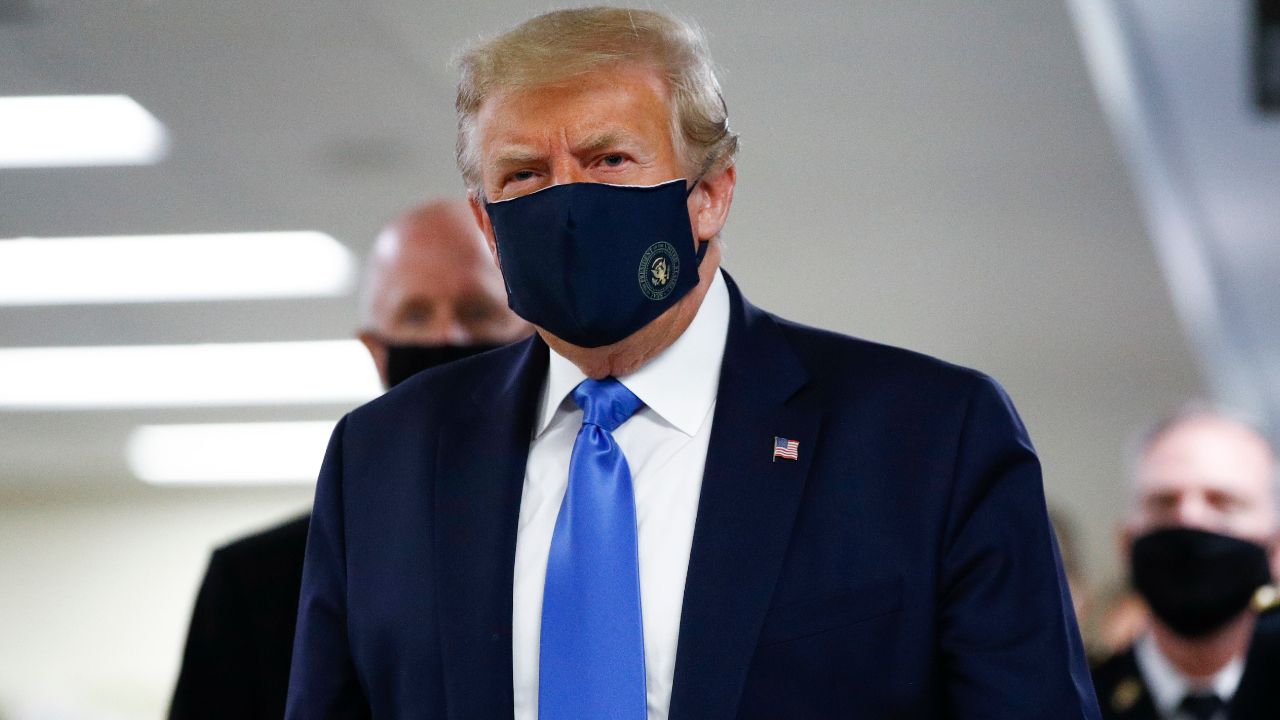President Donald Trump vowed again during his speech at the Republican National Convention Thursday that there will be a coronavirus vaccine in place by year’s end.
But is that feasible?
“In recent months, our nation, and the entire planet, has been struck by a new and powerful invisible enemy,” Trump said at the closing night of the RNC. “Like those brave Americans before us, we are meeting this challenge. We are delivering lifesaving therapies, and will produce a vaccine before the end of the year, or maybe even sooner.”
Sooner — as in Election Day — appears to be far-fetched, experts say; Jan. 1, 2021, meanwhile, is not an impossible goal, but it does seem improbable, according to doctors.
Among those who are optimistic is Health and Human Services Secretary Alex Azar. He told the website MedPage Today earlier this month: "We believe that it is highly credible we'll have in the high tens of millions of doses of gold-standard safe and effective vaccine by the end of this year and many hundreds of millions of doses as we go into the beginning of next year."
Dr. Anthony Fauci, the nation’s top infectious disease expert, said during a July 31 House hearing that he is “cautiously optimistic that we'll have a vaccine by end of this year and as we go into 2021.” But less than two weeks later, he told Bloomberg: “I would hope that by the time we get well into the second half of 2021 that the companies will have delivered the hundreds of millions of doses they have promised.”
There are reportedly four vaccines in clinical trials in the U.S, with one from Moderna being the furthest along. But doctors warn that many vaccines appear promising after the first two phases of testing, only to fail in the third.
Phase 3 also takes time. Doctors say it requires enrolling 30,000 people, giving them the vaccine, waiting another four weeks to administer a second dose, waiting two additional weeks for the people to reach a “full immune response” to the follow-up shot and then allowing enough time to wait for the results. (In other words, the placebo group has to spend enough time out in the world to see if they indeed contract COVID-19 at a higher rate than those who received the vaccine.)
Dr. Susan Bailey, president of the American Medical Association, told MedPage Today earlier this month that even three months is not enough time to evaluate the efficacy of a vaccine.
"That's one reason Phase 3 trials have to last long enough to get you the data that you need,” she said.
“I can't imagine we would have data on this by any earlier than early next year,” Dr. Paul Offit, a member of the Food and Drug Administrations’ advisory committee on immunization approval, told Medscape.
Also, enrolling 30,000 people in a clinical trial doesn’t happen overnight. Moderna and Pfizer, both of which began their trials in late July, have enrolled about half of the 30,000 they need, The Washington Post reported Thursday.
And adding to concerns is that researchers strive for diversity in the participants that mirrors the general population, and only about one-fifth of the volunteers to date are Black or Hispanic, two of the races hardest hit by the coronavirus.
The Trump administration is employing an initiative called “Operation Warp Speed” to help accelerate the timeframe for a vaccine. It aims to deliver 300 million doses of a safe, effective COVID-19 vaccine by Jan. 1 by investing in promising vaccines and betting on them by helping them ramp up manufacturing in anticipation of FDA approval.
Some observers, however, are concerned about the possibility that the Trump administration, hoping to score political points, could pressure the FDA into rushing out a vaccine before it’s proven safe and effective.
Contributing to those fears was this week’s announcement that the FDA had approved a blood plasma coronavirus treatment for an emergency-use authorization. The move came a day after Trump tweeted that the “FDA is making it very difficult for drug companies to get people in order to test the vaccines and therapeutics.”
And then FDA Commissioner Stephen Hahn had to issue an apology after saying during the White House news conference announcing the emergency authorization of convalescent plasma that 35 out of 100 COVID-19 patients “would have been saved” by the treatment. Scientists quickly accused Hahn of grossly misrepresenting the data.
Hahn has repeatedly vowed that the FDA’s decisions on a coronavirus vaccine will be based on science, not politics.
An emergency-use authorization, which does not require full FDA approval, might be the best bet for Trump to deliver on his year-end promise of a vaccine. But even that prospect concerns experts
Fauci says such a move could damage efforts to develop other vaccines.
“One of the potential dangers if you prematurely let a vaccine out is that it would make it difficult, if not impossible, for the other vaccines to enroll people in their trial,” Fauci told Reuters this week.
Said Offit in his interview with Medscape: “What worries me is that that may be [seen] by the administration [as a reason] to truncate things — say, Phase 3 trials — and say, ‘Look, we've got thousands of people. Looks like it's safe. The immune responses are good. Let's get it out there because people are dying, without finishing a Phase 3 trial,’ which I think would be a mistake.”
As of Thursday afternoon, there have been more than 5.9 million cases of COVID-19 in the United States and 181,409 deaths, according to data from Johns Hopkins University.



